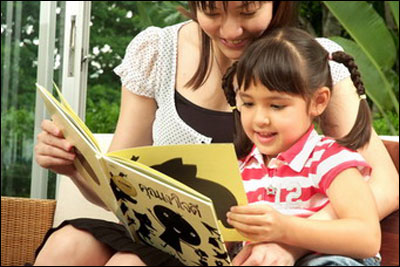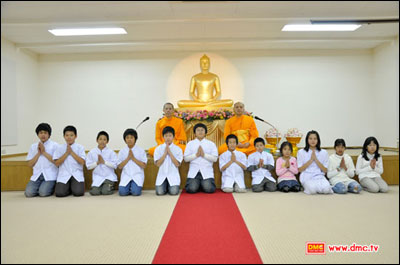MeditationMeditation for BeginnersHow To Build The Habits Of The ChildrenTo Be Sincere And Clever (Mai Ngo)#1They are clever in the way of the world.All of the parents in the world want their children to be clever. The cleverer they are the more the parents will be proud of them. How to raise the children to be clever is not easy because there are different categories of cleverness. Some can be clever to rob or deceive you. Some are clever but are really tricky etc. They can be clever in the wrong way. This type of cleverness always makes trouble but never ends.The thing that the sincere parents want is the type of cleverness that makes the children grow up and progress in their life where they are able to make their living by them-selves, be useful to others and mostly be clever as well in technology.But when we continue to observe, we found that to be clever in technology is not enough. This is because the person who graduates at the highest level to become a doctor, a professor etc. could be a person who makes trouble, and trouble of a more serious nature; even more dangerous than a criminal of the fourth grade in grammar school.For example, a pharmacist knows about chemistry and graduated with honors, but instead of using his/her knowledge to take care of sick people by making medication; s/he made heroin and all of the drugs for the drug addicts. These kinds of drugs harm human life. They always make trouble and it never ends.When we make this observation, the parents who love their children very much continue to have a question: they trained their children to go to upper level schools, and to be clever, so what are they missing?The parents who study Buddhism know the answer. The cleverness or the stupidity of the people depends on two factors:1) They are clever in the way of the world.2) They are clever in the way of the Dhamma.Those who are clever in the way of the world are able to study and learn everything with understanding. When they graduate they are able to use their education to get an occupation and take care of themselves.Those who are clever in the way of the Dhamma have Dhamma rules, combined with a decision as to what is right, what is wrong, what is good, what is bad, what is boon, what is kamma, should or should not, and they pick to think, pick to talk, and they pick all the good things to do.Both clever roads do not go together. The person who is clever in the world way but not clever in the Dhamma way will not be able to go past the trouble because they are missing the cleverness of the Dhamma. So therefore, knowledge of the cleverness of the Dhamma. So therefore, knowledge of the way of the world has to get along with Dhamma knowledge.When the parents saw the picture of how to train the children they saw:They are clever in the way of the Dhamma.How To Raise Children To Be Smart Both In The Way of The World And In The Way of The DhammaOur grandparents know that intelligence is one of the habits which can be planted in children if parents know the heart of intelligence. What is it ?The answer is unbelievable. The answer is that the heart of intelligence is respect. Respect is the origin of all intelligence. If children know how to pay respect to their elders, they’ll be beloved. Whatever the elders know they want to teach to the children. Whatever the elders know they want to teach to the children. But if the children are rude, no one will want to teach anything to them. This is because they are not going to listen and they will not be able to observe what is respectful and what is not.What does respect mean?It means we should keep watching those who have good kamma and try to bring it into ourselves. Don’t imitate when seeing someone else’s mistake and don’t bring it into yourself.Respect Is Watching Someone’s Good And Trying To Emulate Them.For example, chemists try to find out the value of some of the elements in nature to discover what is good in them and what is bad in them. s/he has to look carefully, like with copper, which is the best conductor of heat. Therefore copper is used with electricity. Then later they find out more and use it for a plug and a wire. But copper is very soft and not strong like iron. They will not use copper to make a knife, because the knife will not stay sharp. Iron can be used to make a knife or heavy equipment. Iron is not soft so it cannot be use to make an electrical wire. The chemist observes the value of the elements to utilize them in a useful way for the world. At the same time the parents want the children to be very clever so utilize them in a useful way for the world. At the same time the parents want the children to be very clever so they have to train the children to look at the Dhamma knowledge and the qualities of those who practice the Dhamma well and bring it into themselves so that they might be cleverer in their life. So respect is at the heart of cleverness.How To Raise Children To Be Smart Both In The Way of The World And In The Way of The DhammaRespect And Showing Respect: Is It The Same Thing Or Not?It is not the same thing.The way to show the respect is to “wai” (the bow) and to walk on all fours. This is the outer form of showing respect. But in the meantime, while you are performing the “wai,” what if your inner thought is that you wish to kill that person?With the respect of Dhamma in their minds, they must look to find out the good deeds from the others and duplicate them. Don’t look at the other person’s mistakes. What are you respecting to build up your panna (wisdom)?The grandparents designate clearly the qualities that we must respect, and lead us to possess panna. They are the following 7 factors:1) Respect in the Lord Buddha.2) Respect in the Dhamma.3) Respect in the Sangha.4) Respect in your studies.5) Respect in your practice of meditation (bhavana).6) Respect in non-carelesseness.7) Respect in greeting and talking.All of these seven qualities are the paths of good consideration, The more our children will follow these seven qualities the more they will catch up and bring more goodness into their hearts.The more you do repeat thinking, repeat talking and repeat practicing of the seven factors, the more you gain the wisdom and the responsibility of what is right and what is wrong.At the end they will be able to teach themselves and teach the others the knowledge that they have within themselves, Then they will bring it out to be more useful to the world.The pride of the parents should be that their children are born to do what is useful for themselves, for the family and for the world. However without rushing too much, the grandparents already explained previously why:" /> " /> " /> " /> " /> " /> " /> " /> " /> " /> " />
How To Build The Habits Of The Children To Be Sincere And Clever (Mai Ngo)#1
[ 30 พ.ย. 2554 ] - [ 18271 ]








